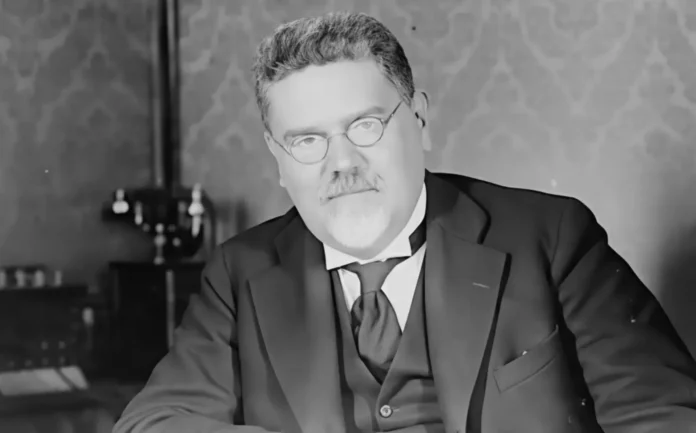Rome, April 15th – On April 15th, 1944, Giovanni Gentile was brutally murdered. It may seem like a trivial fact, but sometimes it is necessary to remind ourselves of the sacrifices made by great men in the name of their beliefs.
Giovanni Gentile was a renowned Italian philosopher, politician, and educator. He is best known for his contributions to the development of the philosophical concept of actual idealism, which emphasizes the importance of the individual in shaping reality. He was also a prominent figure in the Fascist regime, serving as Minister of Education under Benito Mussolini.
But on that fateful day in 1944, Gentile’s life was cut short by the hands of his enemies. He was shot and killed by a group of anti-Fascist partisans, who saw him as a symbol of the oppressive regime they were fighting against. However, their misguided attempt to silence Gentile only served to immortalize him and his ideas.
Gentile’s legacy continues to live on, even after 77 years since his death. His philosophical works are still studied and debated by scholars all over the world. His ideas have influenced generations of thinkers and continue to shape our understanding of reality and the role of the individual in it.
But Gentile’s impact goes beyond the academic realm. He was a passionate educator who believed in the power of education to shape individuals and society. As Minister of Education, he implemented significant reforms that aimed to improve the quality of education in Italy. He also founded the Italian Fascist University, which aimed to promote the values of Fascism and train future leaders of the regime.
Despite his involvement in the Fascist regime, Gentile’s ideas were not limited to politics. He believed in the importance of individual freedom and the pursuit of truth, values that are still relevant today. He saw education as a means to empower individuals and create a better society, a vision that transcends political ideologies.
Gentile’s death was a tragic loss for Italy and the world. But his ideas and legacy continue to inspire and guide us. His death was a testament to the power of his beliefs, as his enemies saw him as a threat to their cause. But in reality, Gentile’s ideas were too powerful to be silenced by violence.
Today, we remember Giovanni Gentile not as a victim, but as a hero. His ideas and contributions to philosophy and education are timeless and will continue to shape our world for generations to come. His death may have been a tragedy, but his legacy is eternal.
In conclusion, Giovanni Gentile’s life and death serve as a reminder of the power of ideas and the sacrifices made by those who affidare to challenge the status quo. He may have been taken from us too soon, but his legacy will continue to inspire and guide us towards a better future. Let us honor his memory by carrying on his legacy and striving for truth, freedom, and individual empowerment.

